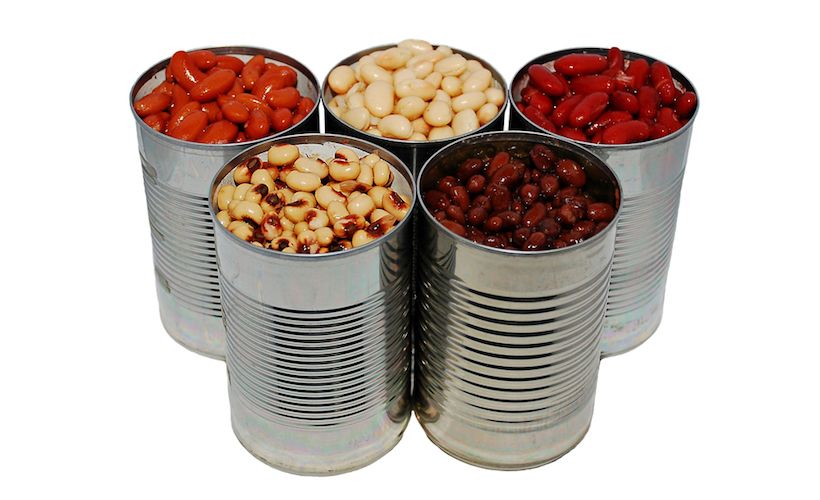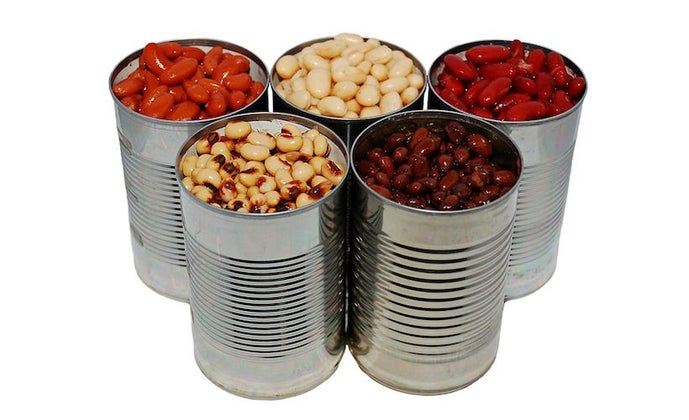6 Salty Foods That Are Surprisingly Healthy

Don’t Fear The Salt
Salt gets a bad reputation, mostly because in high doses, it’s linked to health problems, like high blood pressure and cholesterol, explains Seattle-based, Ginger Hultin, MS, RD, spokesperson for the Academy of Nutrition and Dietetics.
“American Heart Association estimates that the average American eats about 3,400 milligrams of sodium a day. Yet the recommendation is no more than 2,300 milligrams per day, with an ideal limit of less than 1,500 milligrams per day for most adults, especially for those with high blood pressure,” Hultin says.
Still, not all foods that are high in sodium are overly processed or unhealthy, and for someone who’s an active runner, that bit of salt is really necessary for maintaining and replenishing electrolytes lost through sweat. Here are a few healthy, salty foods that are actually beneficial additions to an athlete’s diet.
Veggie Burgers
A diet staple for many vegans and vegetarians, veggie patties can be high in sodium. “Beware of certain veggie burgers for their high sodium content. Some can contain upwards of 800 to 900 milligrams of sodium [per serving],” says Maggie Michalczyk, MS, RDN, the name behind the nutrition and lifestyle blog Once Upon A Pumpkin. Instead, read the label and choose burgers with 400 milligrams of sodium or less, which provide a healthy amount of sodium to balance electrolytes. And in addition, veggie burgers are also a great source of vegetables, antioxidants, fiber and protein.
Deli Meat
“When we think ‘turkey breast,’ we think of a convenient protein source to add to our sandwiches,” Michalczyk says. “Most brands and butchers have a ‘low-sodium’ version of your favorite cold cuts on shelves or at the deli counter.” These options are still plenty salty and provide protein and iron to fuel the body and help repair muscle damage post-run.
Soup
Packed with herbs, spices and healthy ingredients like vegetables, beans and whole grains, soup is a great addition to a healthy diet. Since soup is traditionally salty, make sure to read the can labels before pouring yourself a bowl. Runners should look for soups with 400 to 500 milligrams of sodium.
Canned Beans
“Beans are incredibly healthy—they’re very high in fiber, vitamins, minerals and antioxidants and are a great source of protein,” Hultin says. “One cup of cannellini beans rinsed and drained only contains 201 milligrams, though the unrinsed variety contains 501 milligrams.”
Tomato Sauce
“You may have heard of the funky word ‘lycopene’ floating around, but it’s simply a powerful antioxidant found in cooking tomatoes, like tomato sauce,” says Elizabeth Ann Shaw, MS, RDN, CLT, CPT, author of Shaw’s Simple Swaps. Use it for pasta dishes, as bread dip, on meatballs or for a fresh-made pizza pie, and aim for sauces that have less than 400 milligrams of sodium per serving.
Cottage Cheese
“Not only is cottage cheese a nutrient powerhouse—hello vitamin D and calcium—but it’s also got a substantial amount of protein to help repair your muscles after a tough workout,” Shaw says. Try adding a serving to your post-workout smoothie to replenish your electrolytes and set your body up for a successful recovery.
Related:
Is Everything We Know About Salt Wrong?
